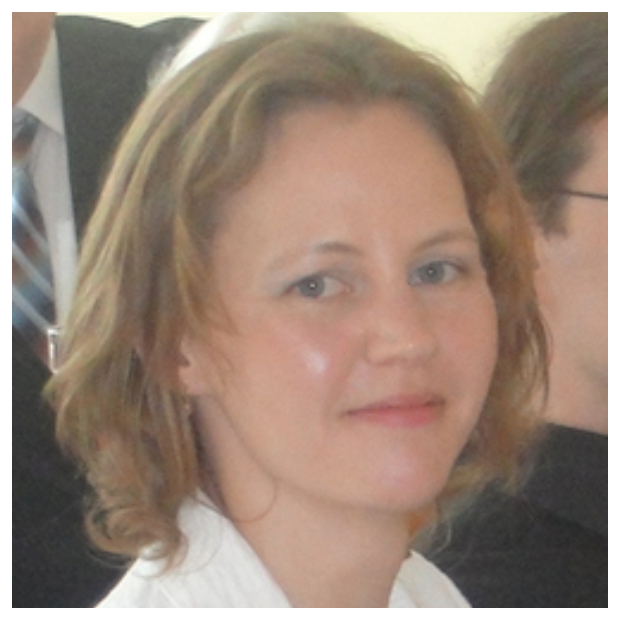On 11 February 2021, the International Day of Women and Girls in Science is held in Estonia for the first time; to mark the occasion, Estonian World highlights seven globally outstanding female scientists from the country.
The Day of Women and Girls in Science was established at the initiative of the United Nations in 2015 with the aim of promoting the significant role of women and girls in the development of science. In 2021, at the initiative of the University of Tartu and the Estonian Young Academy of Sciences, the day is celebrated in Estonia for the first time – to appreciate and recognise female scientists in both academia and society.
According to the vice rector of the University of Tartu, Kristjan Vassil, as many as two thirds of the university’s students are women. “But why is it so that the higher the position in the career ladder, the fewer there are female scientists? Underrepresentation of women is also evident in research policy-making bodies, for example, there is only one woman among the 11 members of highest such body, the research and development council advising the prime minister,” Vassil said in a statement, adding that hopefully, the new gender-balanced Estonian government will pave the way for bigger changes.
Break gender stereotypes
Ester Oras, an associate professor at the University of Tartu and one of the initiators of “Women in Science Day” celebration in Estonia, said in a statement that a woman scientist’s role should be “attractive” and academic women should be “equally involved and justly recognised”. “We also want to help break gender stereotypes and encourage young women and girls to choose a career in science,” she said.
“In the long run, however, we hope to contribute to solving deeper labour market and social issues, like the current gender pay gap (also in academia), the issue of gender equality in governance and in decision-making bodies, harassment cases at work and in private life, or social norms and expectations to women,” Oras added.
To mark the occasion, Estonian World highlights seven globally outstanding female scientists from Estonia, mainly based on the number of international citations. The number of outstanding Estonian female scientists is much higher, of course – in 2020, the Estonian Research Council submitted the names of 80 Estonian researchers to AcademiaNet, the world’s biggest database of profiles of excellent female researchers from all disciplines.
Kessy Abarenkov
Kessy Abarenkov is an associate professor in biodiversity informatics at the University of Tartu. In her research, she focuses on database and system development, building software tools for biodiversity data management, curation and analysis and for identification and metabarcoding of fungi. She is currently involved as a researcher in the Estonian research infrastructure roadmap project, “Natural history archives and information network”.
In 2020, Abarenkov was one of the ten Estonian researchers among the world’s most influential scientists, according to Clarivate Analytics. Clarivate compiles an annual list of top researchers who have shown notable influence in their field and have also published multiple papers that rank in the global top one per cent by citations.
Mari Moora
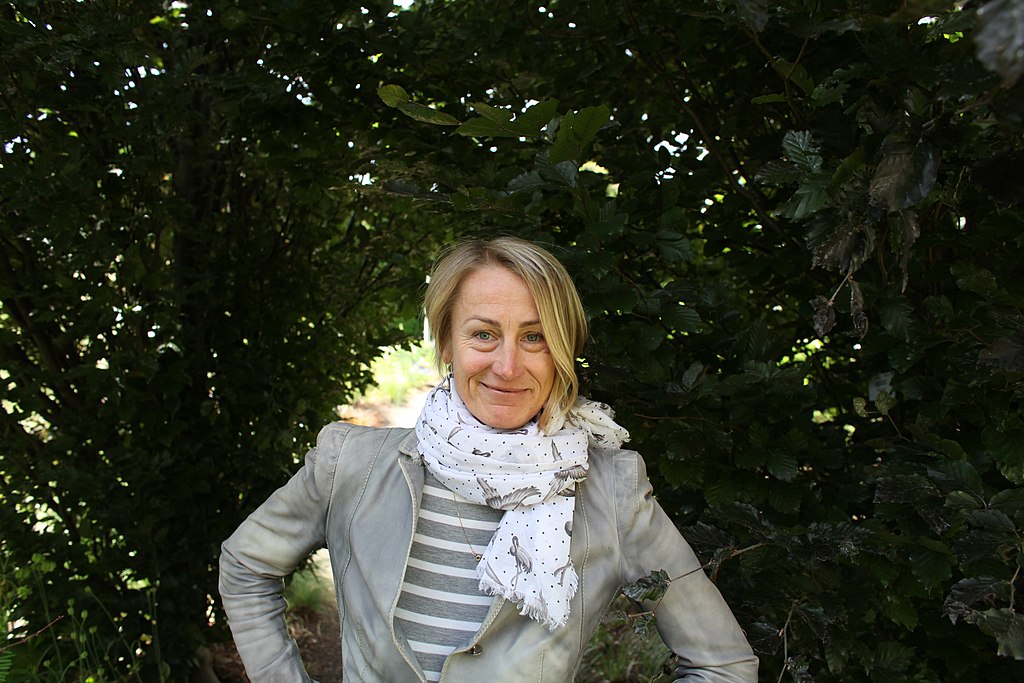
Mari Moora is a professor in community ecology at the University of Tartu, whose research focuses mainly on studying biodiversity: plant competition, arbuscular mycorrhiza connecting fungi and plants, and biological interactions in plant populations. In 2020, she was one of the ten researchers from Estonia among the world’s most influential scientists, according to Clarivate Analytics.
Maarja Öpik
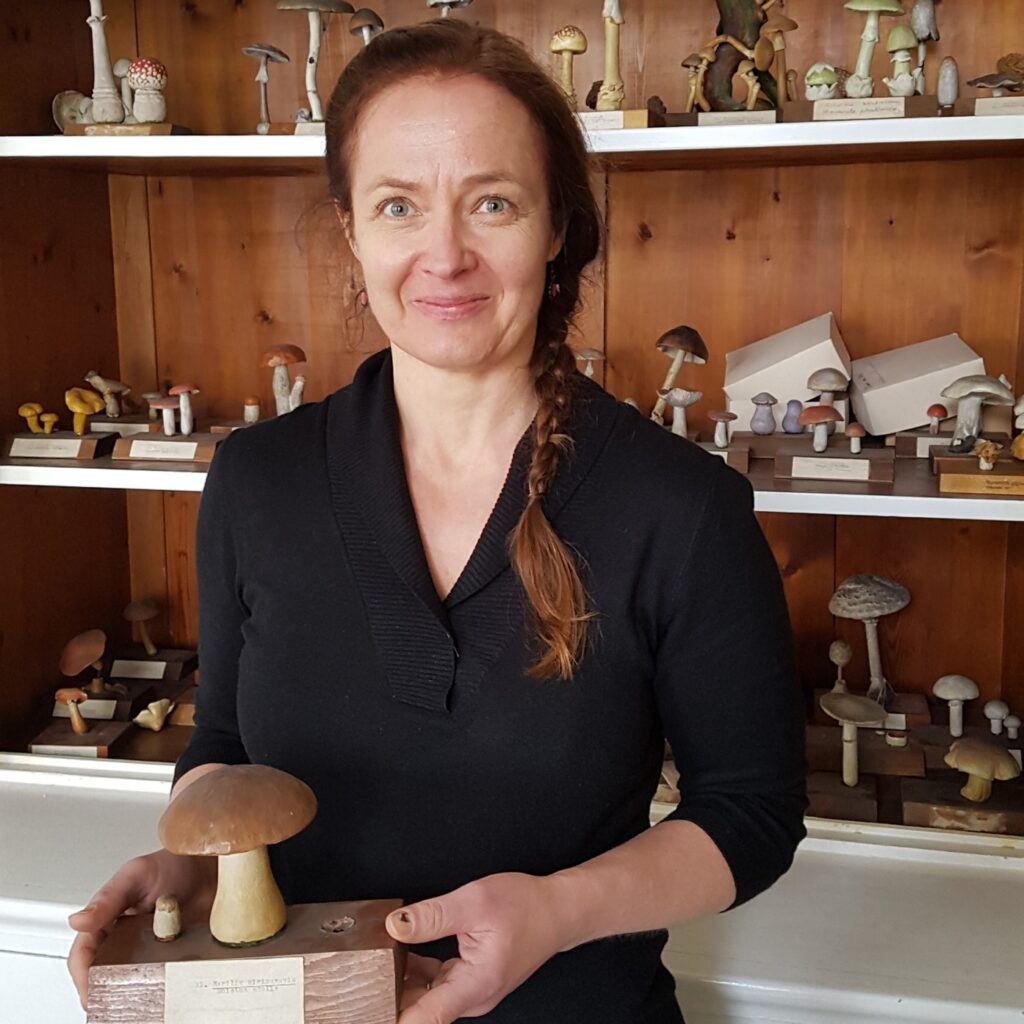
Maarja Öpik is a professor in molecular ecology and the director of the Institute of Ecology and Earth Sciences at the University of Tartu. Öpik researches arbuscular mycorrhiza using molecular methods. She has also contributed into restoring ecosystems and developing sustainable agriculture. In 2020, she was one of the ten Estonian researchers among the world’s most influential scientists, according to Clarivate Analytics.
Anne Kahru
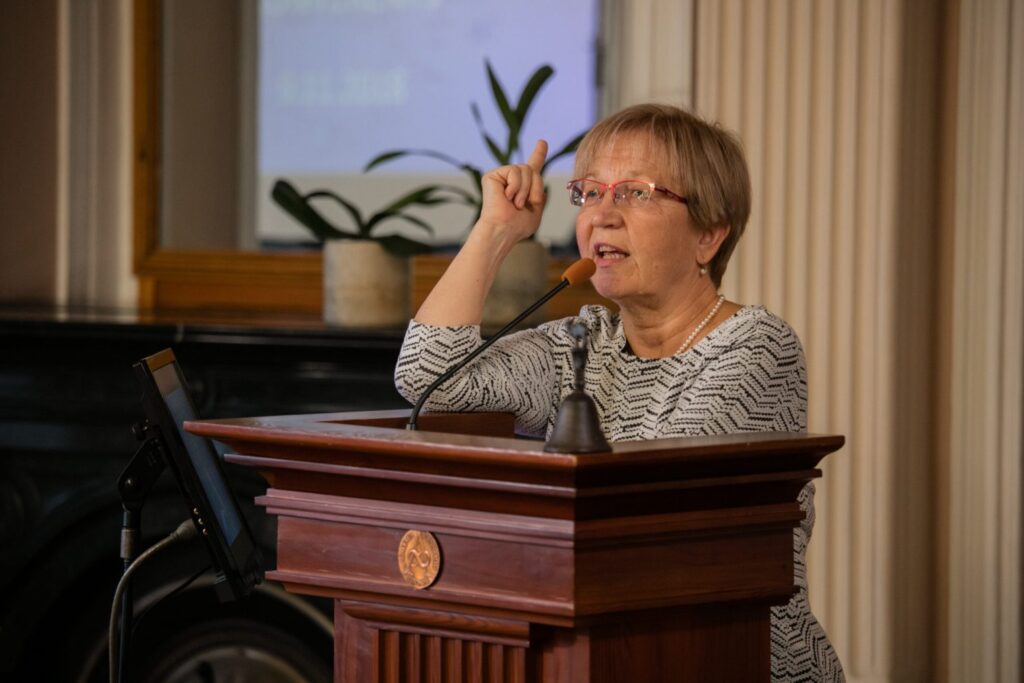
Anne Kahru, the Head of the Estonia’s Laboratory of Environmental Toxicology, was among the world’s most influential scientists, according to Clarivate, from 2018-2019.
Back in 2008, her lab was among the first ones in the world in nanoecotoxicological studies of metal oxide nanoparticles. “Synthetic nanoparticles have been already included in various consumer products (cosmetics, sunscreens, socks, and even underwear). However, relevant toxicological and ecotoxicological information is often misleading. Thus, human exposure to nanoparticles is a real concern,” she told ScienceWatch.com in an interview at the time. Nanotoxicology – the study of the toxicity of nanomaterials – is still her main research interest.
Kahru is also one of the seven female members of the Estonian Academy of Sciences.
Anu Realo

Anu Realo is a professor in the department of psychology at the UK’s University of Warwick and one of the seven female members of the Estonian Academy of Sciences.
Realo’s background is in personality and cross-cultural psychology and she has conducted considerable research on cultural and individual variation in personality development, emotional experience, individualistic-collectivistic attitudes and subjective wellbeing.
She has published 150 articles in internationally renowned scientific journals and books and for several years, was among the world’s most cited scientists, according to Clarivate.
Maarja Kruusmaa
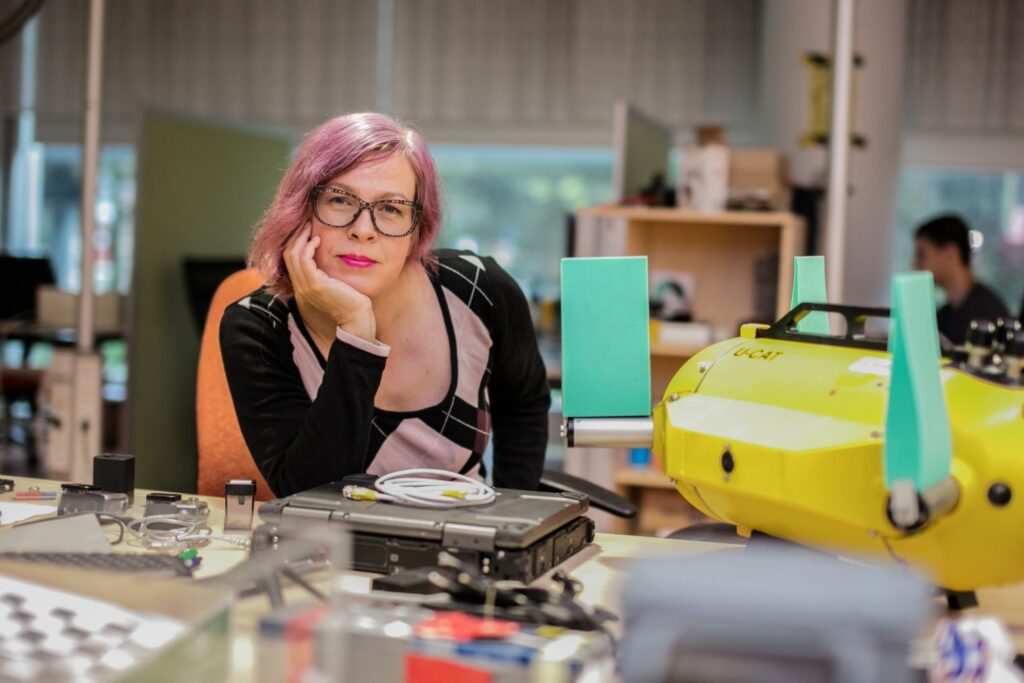
Maarja Kruusmaa is the Head of the Centre for Biorobotics at TalTech and one of the seven female members of the Estonian Academy of Sciences.
Kruusmaa is one of the preeminent experts on robotics in Estonia – her research is loaded with biorobotics, artificial muscles, robot learning, flow sensing and experimental fluid dynamics. Among other projects, the centre she founded has invented underwater robots – a highly manoeuvrable robot turtle, designed to penetrate shipwrecks, and a robot fish.
In the past, Kruusmaa was also a member of an advisory panel that advised the European Commission in ICT. She co-owns at least nine industrial patents.
Lili Milani
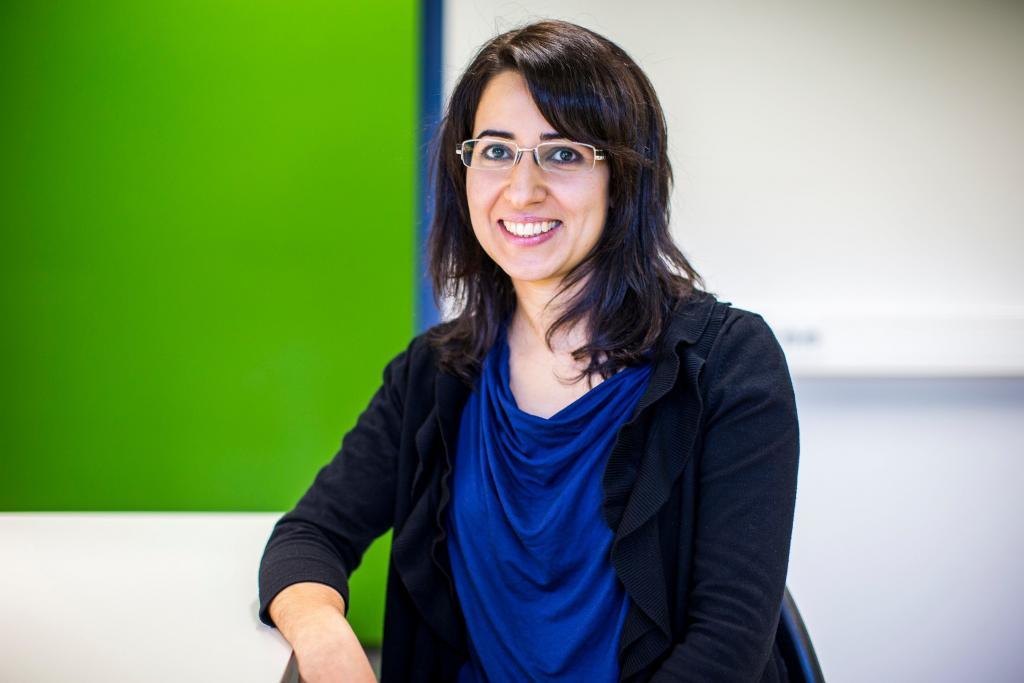
Lili Milani is a professor of epi- and pharmacogenomics and the vice director of Estonian Genome Centre of the University of Tartu. In 2018, the centre ran the Estonian government-backed project to collect the DNA samples of 150,000 Estonians – with the aim of collecting genetic data and integrating it into every-day medical practice by giving people feedback of their personal genetic risks.
Estonia’s genetic data project in this format is unique in the world and stirred much interest abroad. Milani has also published research papers in magazines such as Genome Research, Nature, Science, Nature Genetics and BMC Genomics.


